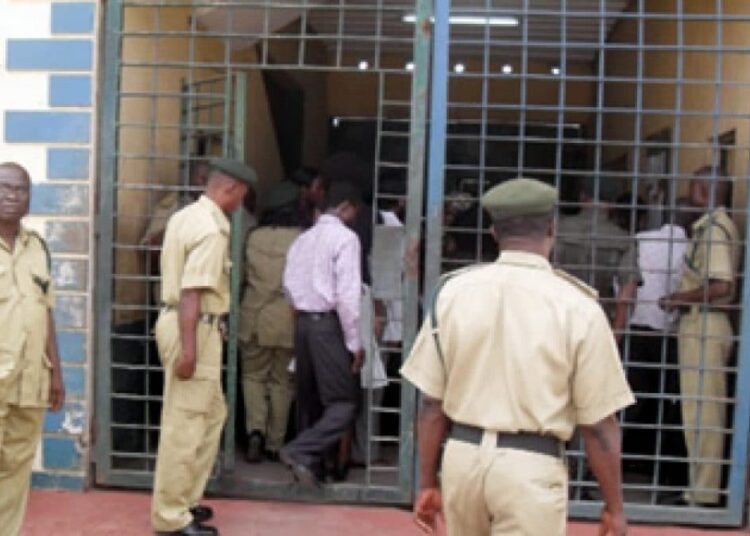The recent report from the Nigerian Correctional Service (NCoS) that no fewer than 8,246 inmates are currently suffering from mental illness across the custodial centres nationwide is disturbing.
During the third public hearing of the Independent Investigative Panel on Alleged Corruption, Abuse of Power, Torture, and Other Inhumane Treatment by the NCoS, the Assistant Controller General of Corrections (ACG), in charge of Medical Services, Dr Glory Essien, said despite interventions, the scale of mental health issues far exceeded the available resources.
According to the World Health Organisation (WHO), a mental disorder is an illness characterised by notable behavioural and psychological expression, which is linked with either a distressing symptom or impairment in functioning in one or more major areas.
We know that there’s no accurate data on the incidence of mental illness in the country. Still, experts put the estimate at 40 million Nigerians likely to experience mental health conditions in their lifetime.
The WHO identified depression, anxiety disorders, schizophrenia, bipolar disorder, and neuro-developmental disorders such as autism.
The global health body warned that exposure to unfavourable social, economic, geopolitical and environmental circumstances – including poverty, violence, inequality and ecological deprivation – also increases people’s risk of developing and experiencing mental health conditions.
This summation powerfully underscores the present condition of inmates who live in the deplorable and inhumane conditions of the nation’s custodial centres.
Though Essien blamed the situation on loss of freedom for the inmates but we know that it goes way beyond that.
The country has 246 outdated correctional centres, many of which were built more than 100 years ago. Most cells are stretched to their limits, and inmates battle for space and survival.
Essien disclosed that the total prison population, including pre-trial detainees, was 81,122, with a reported official capacity of 50,153. Out of this number, a total of 3,688 inmates are currently on death row across various correctional facilities in the country.
As a result, the occupancy level is 136.7 per cent, indicating a significant strain on resources and infrastructure. We recall a report published on this page that alleged that the centres have become citadels of injustice, human rights violations and deliberate acts of dehumanisation against inmates.
We are mindful of the fact that the slow pace of the justice system, particularly in processing cases and executing death sentences, exacerbates prison congestion.
As a newspaper, we know that the living conditions of our custodian centres are enough to drive one insane literally.
What’s worse, many of these inmates are awaiting trial, who may have lost any hope of getting freedom after being held for so long for a crime that, ordinarily, many of them would have gotten off with just a slap on the wrist.
The law requires an arresting officer to allow the suspect to obtain counsel and post bail for some crimes. Provision of bail was often arbitrary or subject to extrajudicial influence. In many areas with no functioning bail system, suspects were incarcerated indefinitely in investigative detention.
Numerous detainees claim that Police demanded bribes to take them to court hearings or to release them, and at times, authorities kept detainees incommunicado for long periods.
Our concern is that with the problems in Nigerian correctional facilities, it may be difficult for Nigerian society to have prisoners rehabilitated for better lives, as encapsulated in the Act.
The Nigerian Correctional Service Act 2019 aims to modernise the country’s correctional system in line with international best standards by emphasising human rights, rehabilitation, and reintegration of inmates.
The Act establishes a distinct Nigerian Correctional Service (NCoS), separate from the previous “Nigerian Prisons Service.” It outlines its objectives and functions, including providing safe and secure custody, implementing non-custodial measures, and fostering reformation and rehabilitation.
Section 2(1)(a) of the Act mandates that the NCoS fully comply with international human rights standards.
It needs restating that these inmates, like every other Nigerian, have their fundamental right to human dignity and are well deserving of treatment, too.
The concern is how readily available is treatment for these inmates in view of the shortage of mental health experts in the country? Nigeria has fewer than 300 psychiatrists serving over 200 million people.
Instructively, Essien said despite federal government efforts, the scale of mental health issues far exceeded the available resources in the custodial centres.
In our opinion, addressing prison congestion and human rights abuses in Nigerian prisons requires a multifaceted approach that emphasises both immediate reforms and long-term strategies.
Improving prison infrastructure and expanding capacity are essential to reducing overcrowding. This can be achieved through increased government funding, constructing new facilities, and upgrading existing ones to meet international standards.
Additionally, alternative sentencing options such as community service, probation, and bail for non-violent offenders can significantly decrease the inmate population.
Reforming judicial processes is crucial, and establishing specialised courts for minor offences can expedite the justice system and alleviate congestion.
Safeguarding human rights requires rigorous oversight and accountability mechanisms. Establishing independent bodies to monitor prison conditions and investigate abuses can help ensure compliance with human rights standards. Training prison staff on human rights and ethical treatment is equally important to prevent abuses and promote humane conditions.





